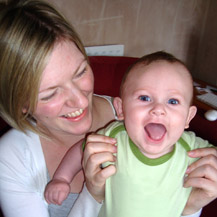The Role of Music in Child Development
Music plays a crucial role in the development of children, influencing various aspects of their cognitive, emotional, and social growth. From infancy through adolescence, exposure to music can have profound effects on a child’s brain development and overall well-being. In this article, we’ll explore the importance of music in child development and how it can positively impact different areas of a child’s life.
Cognitive Development: Enhancing Brain Function
Engaging with music from a young age can help stimulate cognitive development and enhance brain function in children. Research has shown that listening to music can improve memory, attention, and language skills, as well as spatial reasoning and mathematical abilities. Playing musical instruments or participating in music-based activities further strengthens these cognitive skills by requiring coordination, concentration, and problem-solving.
Emotional Development: Expressing Feelings and Empathy
Music has the power to evoke emotions and provide an outlet for children to express their feelings in a safe and constructive manner. Whether through listening to music that resonates with their emotions or creating their own music, children can develop a greater awareness of their feelings and learn to regulate their emotions more effectively. Music also fosters empathy and social connections by allowing children to connect with others through shared experiences and emotions.
Language Development: Improving Communication Skills
Exposure to music and singing can significantly impact language development in young children, helping them improve their communication skills and vocabulary. Singing nursery rhymes, songs, and lullabies exposes children to the rhythm and cadence of language, making it easier for them to learn new words and phrases. Additionally, music enhances phonological awareness, which is crucial for reading and literacy development later on.
Social Development: Building Relationships and Cooperation
Music provides opportunities for children to engage in social interactions and develop important social skills such as cooperation, collaboration, and empathy. Singing and making music together encourages teamwork and fosters a sense of belonging and community. Group music activities such as choir, band, or music classes allow children to work towards common goals, share experiences, and form lasting friendships.
Motor Skills Development: Enhancing Coordination and Movement
Participating in music-related activities such as dancing, playing instruments, or even clapping along to music can help improve children’s motor skills and coordination. Moving to music stimulates the development of gross and fine motor skills, as children learn to synchronize their movements with the rhythm and tempo of the music. Playing instruments requires precise hand-eye coordination and finger dexterity, which can benefit children’s overall motor development.
Music plays a multifaceted role in child development, influencing cognitive, emotional, social, language, and motor skills development. By exposing children to music from a young age and providing opportunities for active engagement with music, parents, caregivers, and educators can support holistic development and nurture a lifelong appreciation for music. Whether through listening, singing, playing instruments, or participating in group music activities, music enriches children’s lives and contributes to their growth and well-being in profound ways.
- Posted on by Content Admin
- Posted in Children

